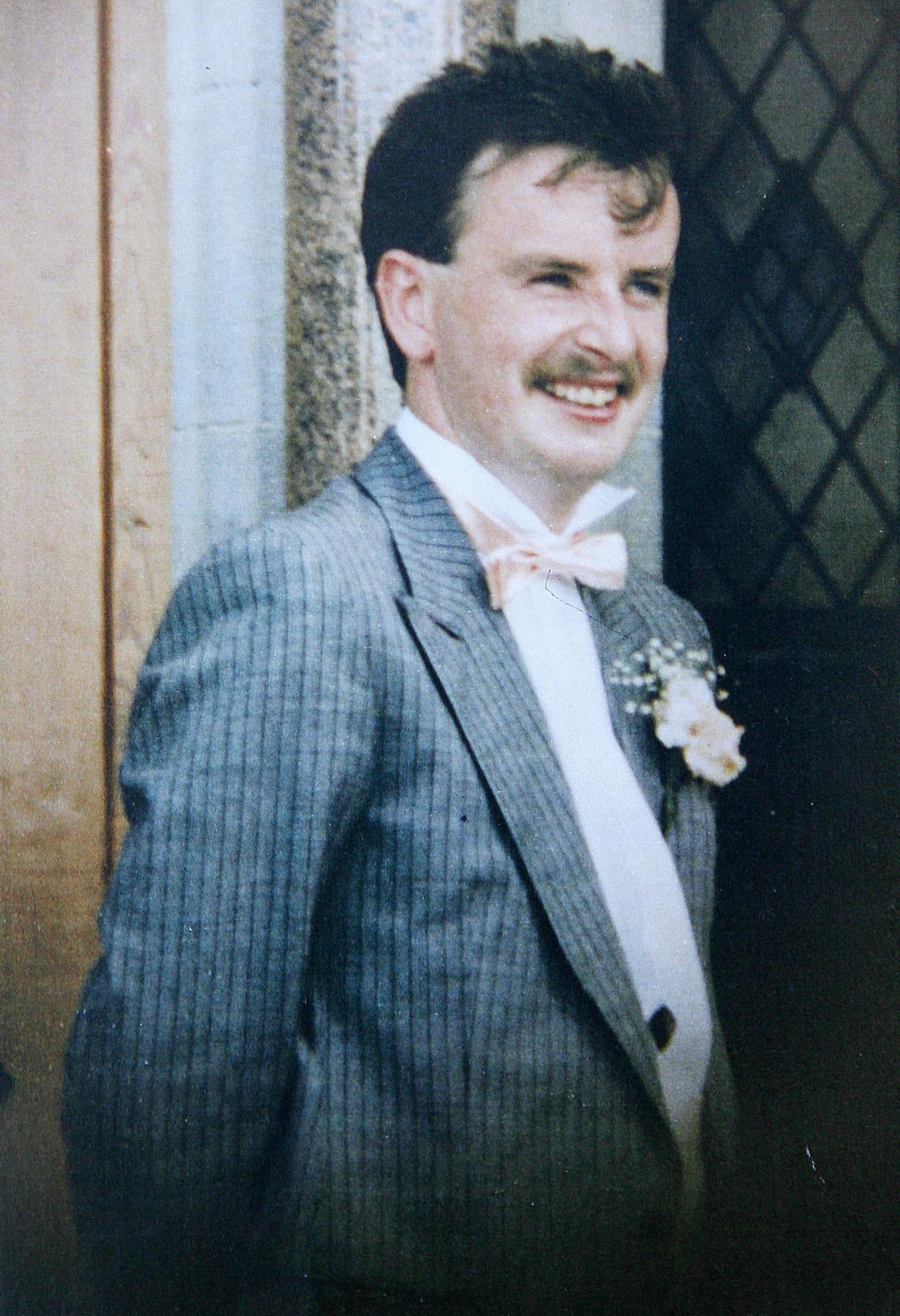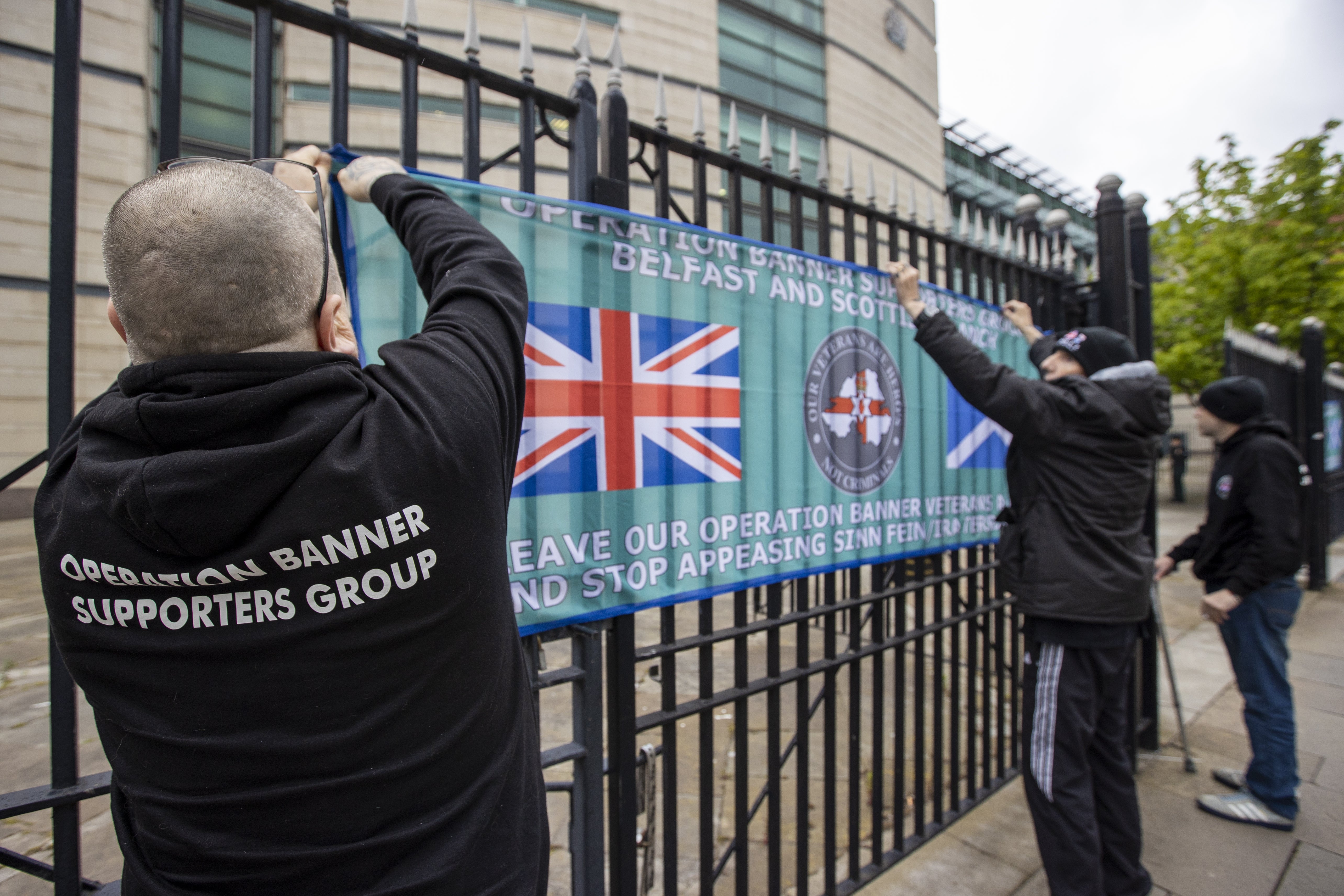
A bid to halt the trial of a former soldier over the death of a man in Tyrone over 30 years ago has been rejected.
David Jonathan Holden, 52, is on trial at Belfast Crown Court accused of the manslaughter of Aidan McAnespie in February 1988.
Mr McAnespie, 23, was killed in Aughnacloy, Co Tyrone, moments after walking through a border security checkpoint.

He was on his way to a local Gaelic Athletic Association club when he was shot in the back.
Holden denies the offence.
His defence team submitted an application to stay proceedings, contending they constitute an abuse of process due to the amount of time that has elapsed and that there is no case to answer.
But Mr Justice O’Hara on Monday rejected the claim that the passage of time, loss of some witnesses, frailties in the recollection of available witnesses and missing exhibits are prejudicial against Holden.
He said the absence of missing witnesses is not significant and that gaps in memories and training records can be accommodated because of the high standard of the police investigation at the time.
“On my analysis, the defence simply cannot identify any serious prejudice it had encountered in this case,” Mr Justice O’Hara said.

He went on to note it cannot be said it will undermine public confidence in the criminal justice system for the trial to proceed.
“There are some in our society who protest about former soldiers, such as this defendant, being tried for what they did many years ago,” he said.
“There are others who complain that it has taken far too long for many people, not just soldiers, to be tried and held to account for deaths during our years of conflict and killings.
“Those are matters for our society and leaders to resolve. They do not form part of my consideration in this court.”
Mr Justice O’Hara added: “It is my conclusion that at this stage of the trial there is a case for the defendant to answer. Accordingly, the application for a direction is refused.”
The trial is set to resume on Tuesday morning.
Holden is a former Grenadier guardsman from England, whose address in court documents was given as c/o Chancery House, Victoria Street, Belfast.
The case is being heard in a Diplock format without a jury sitting.

Supporters for Holden have gathered outside the court each day the trial has sat.
It is proceeding amid continuing controversy over Government plans to deal with Northern Ireland’s troubled past.
The Northern Ireland Troubles (Legacy and Reconciliation) Bill envisages offering immunity from prosecution to people who are deemed to have co-operated with the information retrieval body.
Criminal prosecutions could still take place for those that do not.
The Holden case is one of a series of high-profile prosecutions of veterans that have been pursued in Northern Ireland in recent years.







